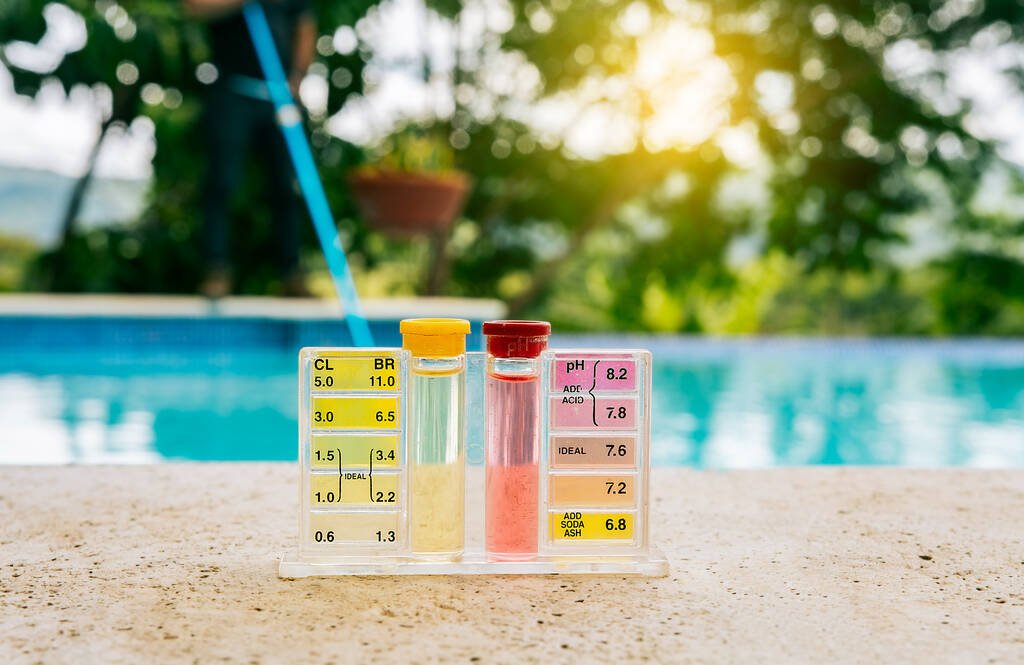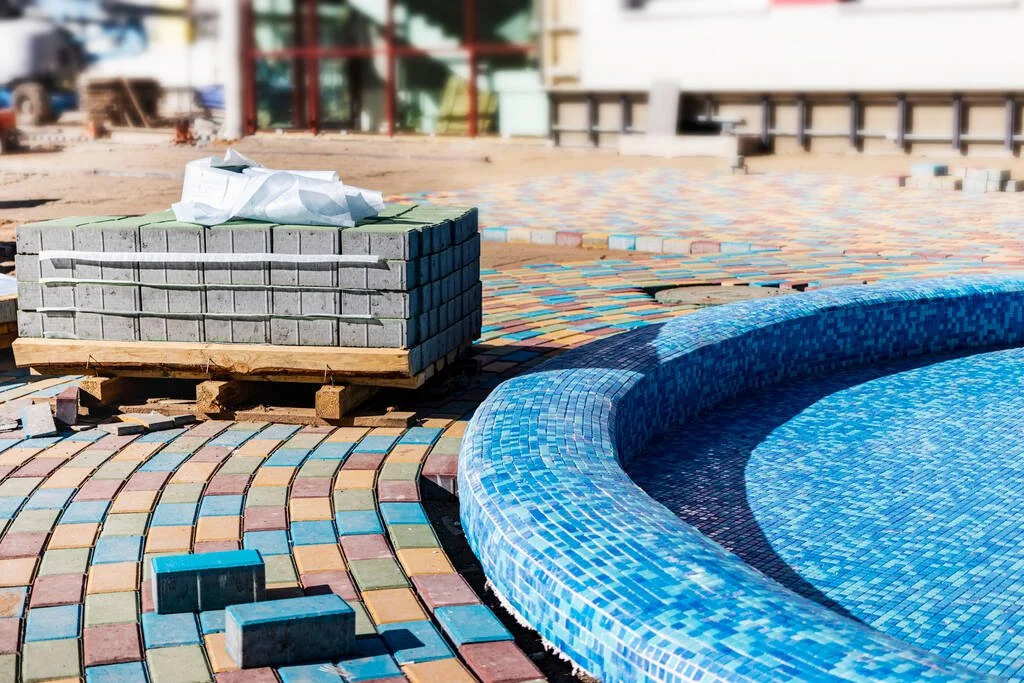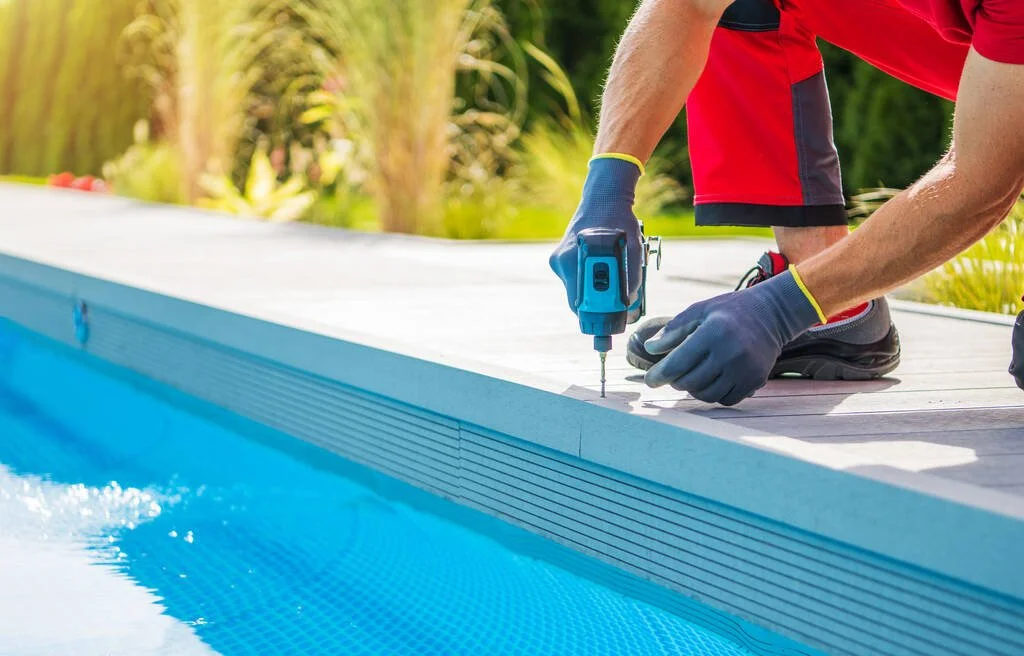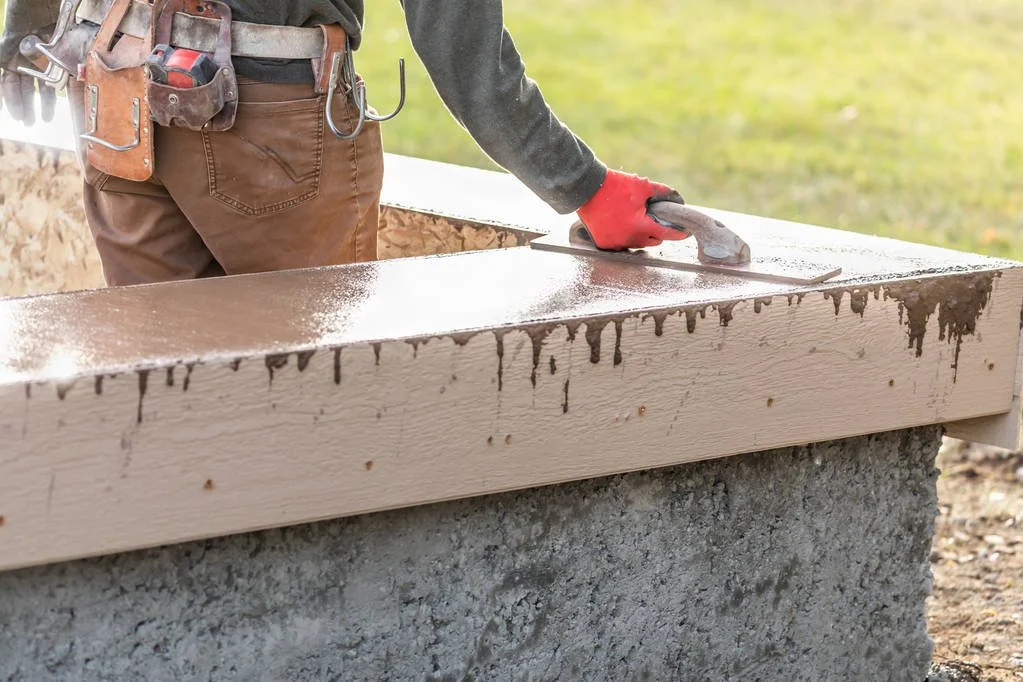Swimming Pool Maintenance 101: Keeping Your Pool Crystal Clear Throughout the Year
Australians love their swimming pools, and who can blame them? With the country's warm and sunny climate, having a pool in your backyard is a true luxury. However, owning a pool also comes with the responsibility of proper maintenance to ensure it stays crystal clear and inviting year-round.
Australians love their swimming pools, and who can blame them? With the country's warm and sunny climate, having a pool in your backyard is a true luxury. However, owning a pool also comes with the responsibility of proper maintenance to ensure it stays crystal clear and inviting year-round. In this guide, we'll dive into the essential steps of swimming pool maintenance to help you keep your oasis in top shape.
Why Pool Maintenance Matters
Maintaining a swimming pool isn't just about aesthetics; it's crucial for the health and safety of those who use it. Neglecting proper maintenance can lead to a range of problems, including algae growth, waterborne illnesses, and costly repairs. Regular maintenance not only keeps your pool water clean and safe but also extends the life of your pool equipment.
Daily Maintenance
1. Skimming and Cleaning
Frequency: Daily
One of the simplest yet most effective ways to maintain your pool is by skimming it daily. Use a pool skimmer or net to remove leaves, insects, and debris from the water's surface. Also, check and empty the skimmer basket regularly to prevent clogs and keep the water circulation efficient.
2. Brushing
Frequency: Weekly
Brushing your pool's walls and floors helps prevent the buildup of algae and debris. Use a pool brush to scrub these surfaces, paying special attention to areas that may not receive adequate circulation, such as corners and steps. Brushing should be done weekly to keep your pool surfaces sparkling clean.
Weekly Maintenance
3. Testing Water Chemistry
Frequency: Weekly
Maintaining the right water chemistry is essential for safe and comfortable swimming. Use a water testing kit to check the pH, chlorine, and alkalinity levels, and keep records of these readings. Aim for a pH level between 7.2 and 7.6 and a chlorine level of 1-3 ppm (parts per million). Adjust these levels as needed by adding pool chemicals like chlorine or pH increaser/decreaser.
4. Shocking the Pool
Frequency: Weekly or as needed
Shocking your pool involves adding a concentrated dose of chlorine to kill bacteria, algae, and other contaminants. This should be done weekly or whenever your water test indicates a drop in chlorine levels. Follow the manufacturer's instructions on the chlorine shock product you use, and be sure to do this in the evening to prevent sunlight from degrading the chlorine.
Monthly Maintenance
5. Cleaning the Filter
Frequency: Monthly
Your pool filter plays a crucial role in removing impurities from the water. To ensure it operates efficiently, clean or backwash it monthly, or when the pressure gauge indicates a 10-15 psi increase over the normal reading. A clean filter keeps the water circulation running smoothly.
Seasonal Maintenance
6. Winterizing (for non-heated pools)
Frequency: Annually (before winter)
If you have a non-heated pool and plan to close it for the winter, you'll need to winterize it properly. This involves lowering the water level, cleaning the pool, and adding winter chemicals to prevent algae growth and equipment damage during the colder months. Consult your local pool professional for guidance on the best practices for winterizing your pool in your specific climate.
7. Opening the Pool (for heated pools)
Frequency: Annually (spring)
When the warmer weather returns, it's time to open your pool for the season. Remove the cover, clean and balance the water chemistry, and inspect the equipment for any issues. You may need to shock the pool and run the filter continuously for a few days to get the water crystal clear again.
Additional Tips for Pool Maintenance
Regular Inspections
Keep an eye out for any signs of damage or leaks in your pool equipment. Address any issues promptly to prevent costly repairs down the line.
Safety First
Make sure your pool area is safe by installing a fence or barrier, and always supervise children around the pool.
Proper Storage
Store pool chemicals in a cool, dry place away from direct sunlight and out of reach of children and pets.
Professional Help
If you're unsure about any aspect of pool maintenance, don't hesitate to consult a professional swimming pool contractor. They can offer expert advice and take care of more complex tasks.
In conclusion, maintaining a crystal-clear pool throughout the year requires dedication, but the rewards of having a clean and inviting swimming pool in your backyard are well worth it. Proper pool care is not just about physical upkeep; it can also impact your personal finance by avoiding costly repairs in the long run. By following these maintenance tips, you can ensure that your pool remains a source of joy, relaxation, and entertainment for your family and friends. Enjoy your pool, and happy swimming!
Ready to make your pool & poperty maintenance hassle-free and enjoy crystal-clear waters year-round? Contact us today and let us take care of your pool needs. Don't wait – take the plunge and reach out to us now for a sparkling pool experience like no other!
The Economics of Owning a Swimming Pool: Cost, Maintenance, and Property Value
Owning a swimming pool can be a dream come true for many homeowners. It's a place where family and friends gather for leisure and relaxation, providing an oasis of fun during the scorching summer months. However, the decision to install a swimming pool is not just about creating a personal paradise—it also comes with economic considerations.
Owning a swimming pool can be a dream come true for many homeowners. It's a place where family and friends gather for leisure and relaxation, providing an oasis of fun during the scorching summer months. However, the decision to install a swimming pool is not just about creating a personal paradise—it also comes with economic considerations. In this blog, we will delve into the economics of owning a swimming pool, exploring the costs involved, the ongoing maintenance requirements, and how it can impact your property's value.
The Initial Investment
One of the primary economic factors to consider when deciding to own a swimming pool is the initial cost. Installing a swimming pool is a significant investment, and the price can vary widely based on several factors:
Pool Type: There are various types of swimming pools, including in-ground, above-ground, and semi-inground pools. In-ground pools tend to be the most expensive due to excavation and construction costs, while above-ground options are generally more affordable.
Size and Shape: Larger and more intricate pools will naturally cost more than smaller, simpler ones.
Materials: The choice of pool materials, such as concrete, vinyl, or fiberglass, can impact the cost. Concrete pools tend to be the most expensive but offer customisation options.
Additional Features: Features like waterfalls, fountains, lighting, and heating systems can add to the initial cost.
Location: Local labor and material costs, as well as permitting requirements, can vary greatly depending on your geographical location.
On average, homeowners can expect to spend anywhere from $20,000 to $70,000 or more on the installation of a swimming pool. The initial investment can be a significant financial commitment, and it's crucial to factor in these costs when deciding if a pool is right for you. When planning this investment, it is wise to consider how it aligns with your broader personal finance strategy to ensure long-term financial stability.
Maintenance Costs
Beyond the initial investment, owning a swimming pool entails ongoing maintenance expenses. Maintaining a pool is essential to ensure its longevity, safety, and functionality. The costs associated with pool maintenance can include:
Chemicals: Regularly testing and treating the pool water with chemicals like chlorine, pH balancers, and algaecides can cost several hundred dollars per year.
Energy Costs: Running pool pumps, filters, and heaters can significantly increase your monthly energy bills.
Cleaning and Repairs: Pool skimmers, brushes, and vacuum equipment require periodic replacement or repair. Additionally, unexpected repairs can arise due to wear and tear.
Water Usage: Evaporation and water loss due to splashing can result in the need to frequently top up the pool with fresh water, adding to your water bill.
Seasonal Expenses: Winterising the pool in colder climates and opening it in the spring can incur additional costs.
Annual maintenance costs for a swimming pool can range from $1,000 to $3,000 or more, depending on the pool's size and location. While these costs are ongoing, they are essential to ensure the pool remains safe and enjoyable for years to come.
Property Value Considerations
Now, let's explore how owning a swimming pool can impact the value of your property. The effect on property value can be complex and depends on several factors:
Location: The impact of a swimming pool on property value can vary significantly depending on your region and local real estate market. In warmer climates such as Queensland & Northern Territory , pools may be more desirable and could add value, while in cooler regions, they may not have the same impact.
Buyer Preferences: Some buyers see a swimming pool as a valuable amenity that enhances their quality of life. However, others may view it as a liability due to maintenance costs and safety concerns, especially if they have young children.
Pool Quality: The quality and condition of the pool matter. A well-maintained, professionally designed pool is more likely to add value than a neglected or poorly constructed one.
Landscaping and Aesthetics: The overall aesthetics of your pool and landscaping can influence its impact on property value. A beautifully landscaped pool area may have a more positive effect.
Market Trends: Real estate market trends can also play a role. If swimming pools are in high demand in your area, they may have a more significant impact on property value.
In general, a swimming pool is unlikely to add dollar-for-dollar value to your property. Instead, it can enhance your property's marketability and appeal to a specific segment of buyers. If you plan to sell your home in the future, consider how the presence of a pool aligns with local market dynamics and buyer preferences.
Conclusion
Owning a swimming pool can provide countless hours of enjoyment and relaxation for you and your family. However, it's essential to approach this decision with an understanding of the economics involved. Consulting with pool experts can help you navigate the financial aspects effectively. The initial investment, ongoing maintenance costs, and impact on property value all play a role in determining whether a swimming pool makes financial sense for your specific circumstances.
Before diving into pool ownership, thoroughly research the costs associated with installation and maintenance, and consider how a pool aligns with your long-term financial goals. Additionally, consult with local real estate experts to gain insight into how pools affect property values in your area. By making an informed decision, you can enjoy the benefits of a swimming pool while managing its economic implications effectively.
Lean more here: Swimming pools and spas NSW Gov
Choosing the Right Pool Contractor: Tips and Red Flags to Watch Out For
In the land Down Under, where the sun shines bright and the weather is warm, having a pool in your backyard can be a dream come true. Whether you're looking to cool off on a scorching summer day or simply want to enhance your outdoor living space, building a pool is a significant investment. To ensure your pool project goes swimmingly, it's crucial to choose the right pool contractor.
In the land Down Under, where the sun shines bright and the weather is warm, having a pool in your backyard can be a dream come true. Whether you're looking to cool off on a scorching summer day or simply want to enhance your outdoor living space, building a pool is a significant investment. To ensure your pool project goes swimmingly, it's crucial to choose the right pool contractor. In this blog, we'll explore some valuable tips and red flags to watch out for when selecting the perfect pool builder.
1. Do Your Homework
Before diving into the world of pool contractors, take the time to do your homework. Research different contractors in your area, read online reviews, and ask for recommendations from friends and family. Start by making a list of potential candidates to consider.
2. Check Credentials and Licensing
The first thing you should look for when assessing pool contractors is their credentials and licensing. In Australia, pool builders are required to have the appropriate licenses to ensure they meet safety and quality standards. Check if the contractor holds the necessary licenses for your state or territory, and verify their credentials with the relevant authorities.
3. Experience Matters
Experience counts when it comes to pool construction. A contractor with a solid track record is more likely to deliver quality results. Ask potential contractors about their experience in the industry, the number of projects they've completed, and whether they specialise in the type of pool you want (e.g., in-ground, above-ground, concrete, or fiberglass).
4. Inspect Previous Work
One of the best ways to gauge a pool contractor's capabilities is to inspect their previous work. Ask for a portfolio of completed projects or, even better, visit some of their past installations. This will give you a firsthand look at the quality of their craftsmanship and attention to detail.
5. Ask for References
Don't hesitate to ask for references from past clients. Speaking to homeowners who have worked with the contractor can provide valuable insights into their professionalism, communication skills, and overall satisfaction with the project.
6. Get Multiple Quotes
Obtaining multiple quotes is essential to ensure you're getting a fair deal. Compare quotes from different contractors, but don't automatically choose the cheapest option. Consider the overall value, including the contractor's reputation, experience, and the quality of materials they plan to use.
7. Communication is Key
Effective communication is vital throughout the entire pool construction process. Pay attention to how well a contractor communicates with you from the initial consultation onwards. They should be responsive, transparent, and willing to answer all your questions.
Red Flags to Watch Out For
Now that we've covered some tips for choosing the right pool contractor, let's discuss some red flags that should raise concerns:
1. Lack of Licensing and Insurance
A contractor who cannot provide proof of the necessary licenses and insurance should be avoided at all costs. This is a clear indicator of their lack of professionalism and commitment to adhering to industry standards.
2. High Pressure Sales Tactics
Be wary of contractors who use high-pressure sales tactics to push you into making quick decisions. A reputable contractor will give you time to review the proposal and make an informed choice.
3. Unwillingness to Provide References
If a contractor is hesitant to provide references or you discover negative feedback from past clients, it's a major red flag. Transparency and a willingness to showcase their work are signs of a trustworthy contractor.
4. Vague Contracts
Never sign a contract that is vague or lacking in detail. Your contract should clearly outline the scope of work, payment terms, project timeline, and any warranties or guarantees.
5. No Written Estimates
A reputable pool contractor should provide you with a written estimate that includes all costs associated with the project. Beware of contractors who give verbal estimates or refuse to provide a detailed breakdown of expenses.
6. Subcontracting Without Disclosure
Some pool contractors may subcontract parts of the project to other companies or individuals. While subcontracting is common, the key is transparency. Ensure that the contractor discloses any subcontractors and that they have the necessary expertise and credentials.
Choosing the right pool contractor is a crucial step in turning your dream pool into a reality. By doing your homework, checking credentials, and paying attention to both positive signs and red flags, you can make an informed decision. Remember, a reputable pool contractor will not only build a beautiful and functional pool but also provide peace of mind throughout the construction process. So, take your time, ask questions, and dive into your pool project with confidence. In the end, you'll be splashing and relaxing in your oasis for years to come.
A Step-by-Step Guide to Building Your Own Pool
Imagine the perfect summer day: the sun is shining, the temperature is just right, and you have a sparkling pool waiting for you to take a refreshing dip. For many homeowners, having a pool in their backyard is a dream come true. The good news is that building your own pool is not as challenging as it may seem, and it can be a rewarding DIY project.
Imagine the perfect summer day: the sun is shining, the temperature is just right, and you have a sparkling pool waiting for you to take a refreshing dip. For many homeowners, having a pool in their backyard is a dream come true. The good news is that building your own pool is not as challenging as it may seem, and it can be a rewarding DIY project. In this step-by-step guide, we will walk you through the process of building your own pool, turning your backyard into a personal oasis.
Step 1: Planning and Permits
Before you start digging, you need to have a solid plan in place. Consider the following factors:
Pool Type: Decide on the type of pool you want. In-ground, above-ground, or semi-inground pools each come with their own set of considerations.
Size and Shape: Determine the size and shape of your pool based on your available space and personal preferences.
Budget: Establish a budget for your project. Remember to account for materials, equipment, labor (if needed), and any unexpected costs.
Permits: Contact your local government or municipal office to find out what permits are required for pool construction. Compliance with local regulations is essential.
Step 2: Gather Materials and Equipment
Once you have your plan and necessary permits, it's time to gather the materials and equipment you'll need. This includes:
Excavation Equipment: You may need a backhoe or excavator to dig the hole for your pool.
Pool Shell: Purchase a pool shell that matches your chosen design. These can be made of various materials, such as fiberglass, concrete, or vinyl.
Filtration and Pump System: Invest in a reliable filtration and pump system to keep your pool water clean and clear.
Decking Materials: If you plan to have a deck around your pool, gather the materials for that as well. Options include wood, concrete, or composite materials.
Plumbing, Electrical & Technology Components: You'll need pipes, fittings, and electrical components for proper water circulation and lighting.
Safety Equipment: Ensure you have safety equipment, such as a pool cover, fence, and alarms, to meet safety standards.
Step 3: Site Preparation
Before you start digging, mark the pool's outline on the ground and clear the area of any obstacles like rocks, tree roots, or utility lines. Make sure the excavation area is level and properly compacted. If necessary, hire a professional to assist with excavation to ensure accurate dimensions.
Step 4: Dig the Hole
With your pool's outline marked, it's time to dig the hole. If you're using heavy equipment, follow the markings precisely to create the shape and depth you planned for. Be cautious to avoid over-digging or creating uneven surfaces.
Step 5: Install the Pool Shell
Carefully lower the pool shell into the hole, ensuring it is level and properly aligned. Follow the manufacturer's instructions for securing the shell in place. If you're building a concrete pool, this step will involve building the pool structure with rebar and concrete.
Step 6: Plumbing and Electrical
Install the plumbing and electrical components necessary for water circulation, filtration, and lighting. This may include pipes, pumps, filters, and lights. It's crucial to ensure that all connections are watertight and up to code.
Step 7: Deck and Surroundings
If you plan to have a pool deck or other features around your pool, now is the time to build them. Consider aesthetics, functionality, and safety when designing and constructing these elements.
Step 8: Water Filling and Testing
Once your pool is in place and the surrounding area is complete, it's time to fill it with water. Use a garden hose or have water delivered by a tanker. While the pool is filling, closely monitor for any leaks or irregularities in the pool structure.
Step 9: Water Treatment
After your pool is filled, it's important to balance the water chemistry. Test the water and adjust the pH, alkalinity, and sanitiser levels as needed to ensure safe and clear water. Regularly maintain your pool's water quality to prevent algae growth and bacterial contamination.
Step 10: Enjoy Your Pool
Congratulations! You've successfully built your own pool. Now it's time to kick back, relax, and enjoy your new oasis. Invite friends and family over for a pool party, or simply savor the tranquility of a leisurely swim on a sunny day.
Ready to turn your dream pool into a reality? Contact Platinum Pools NSW today, and let our experienced team of pool builders bring your vision to life! We specialise in crafting custom pools that match your unique style and preferences. Don't wait any longer; take the first step towards your dream pool by reaching out to us now.












